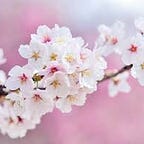Why Banning AP Courses in High Schools Will Increase Inequity, Not Reduce It
Recently it has been called to my attention that some public officials, including Governor Jay Inslee, are calling for a cut to AP classes in Washington state high schools. The general idea of such an initiative is that, by cutting AP classes and forcing every student into the same level of the same classes, we are setting every student on equal ground and thus helping reduce inequity in our schools. Right?
No.
Students don’t take AP classes just to take AP classes. They are taken for an express purpose. One such purpose is trying to get into get acceptance into a good university. Many students have their sights set on top schools, and know that taking and doing well in tougher classes is feat that is awarded by admission to such schools. By blocking students’ access to tougher courses, are we minimizing, or even eliminating, their chances of going to top universities?
Thousands of minority students in Washington state take AP classes every year, boosting their educational success. Should we snatch this opportunity from their grasp? By trying to solve the inequality of AP classes, we are instead setting Washington state students at a disadvantage against the rest of the United States in the eyes of college admissions.
There is a different way of approaching this problem that will help, not hurt, students. Rather than cutting off the AP opportunity for all students, what if we instead focused on uplifting minority students, encouraging them to push themselves academically by taking AP classes. By uplifting these students, we are helping them dream bigger and succeed at higher levels, and not be limited by society.
